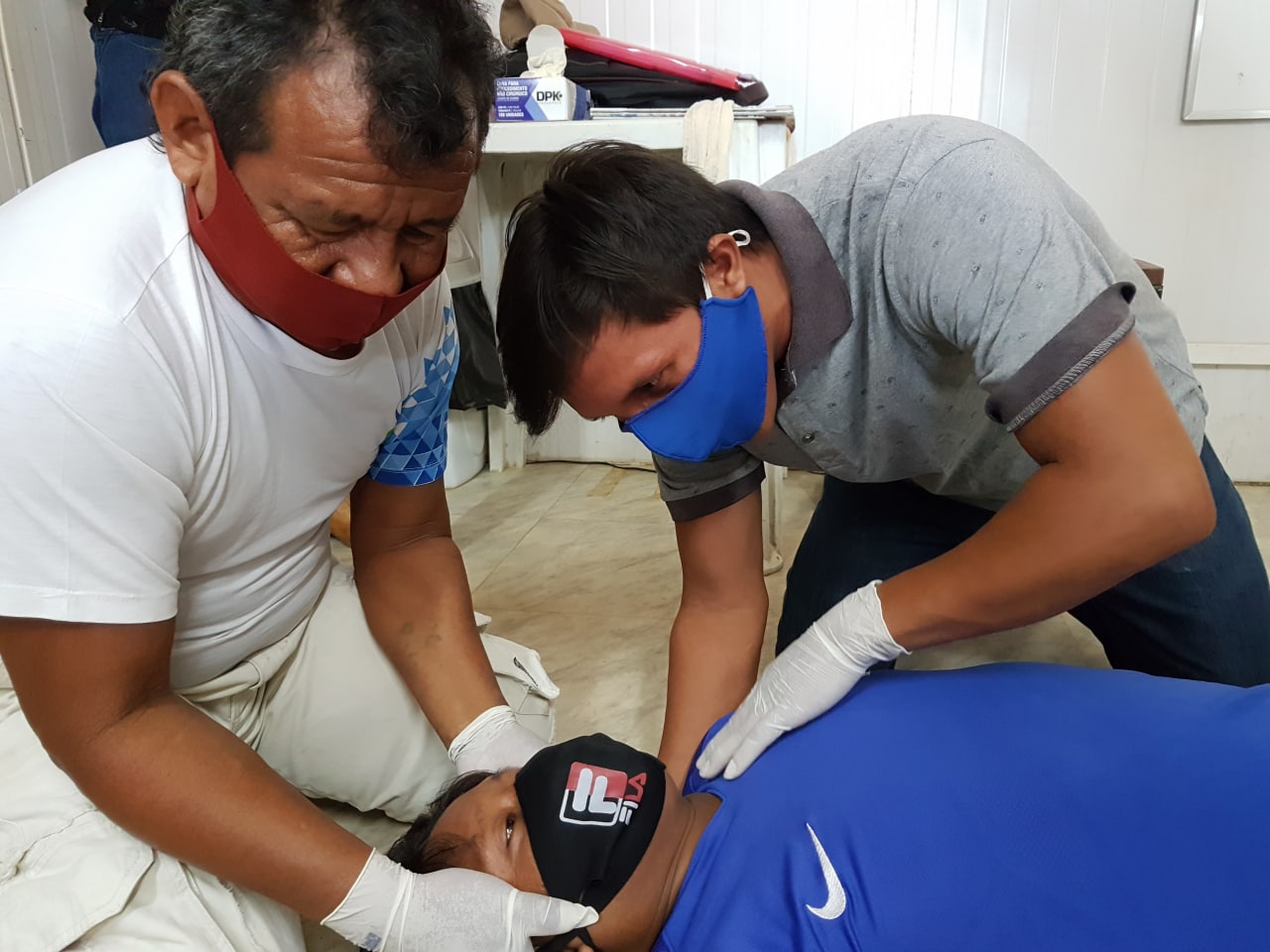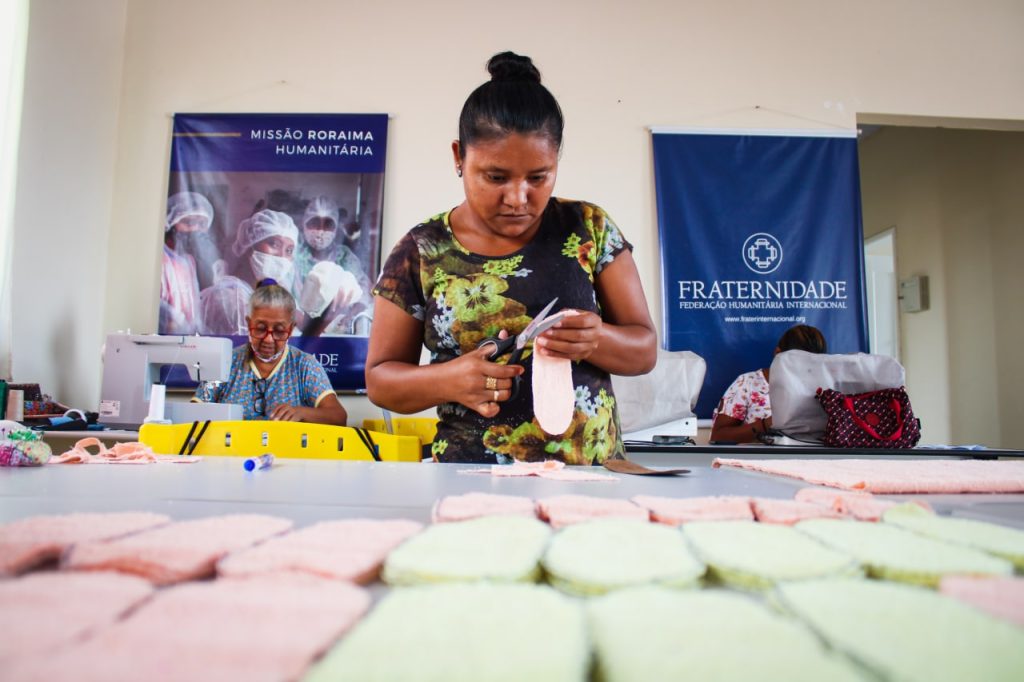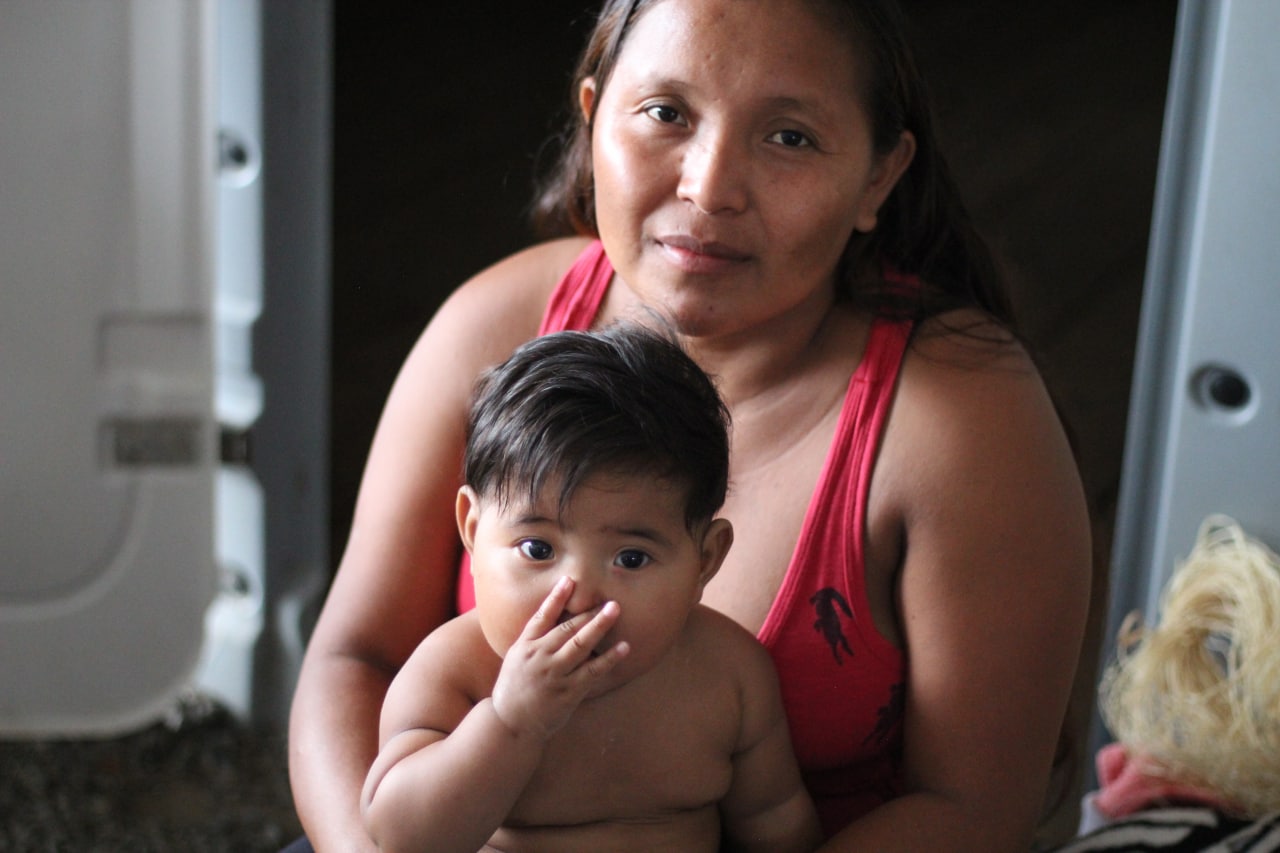Building Livelihoods, reinforcing Durable Solutions so refugees and immigrants can have decent conditions for restructuring their lives in the host communities
Created by the UN in 2001, Refugees Day is celebrated worldwide on June 20th. The date was created so that civil society and nations would reflect on the situations millions of people are in, forced to abandon their countries of origin due to persecution, armed conflicts, climate change effects and humanitarian crises.
In 2022, the subject of the World Refugee Day established by the UNHCR (the UN Agency for Refugees) is “Whoever it may be, whenever it is, wherever it is: all people have the right to seek protection”. This subject emphasizes the need for ensuring the rights of those who had to abandon their homes in search of decent conditions for rebuilding their lives.

According to the report Global Trends: Forced Displacement in 2021, published this Thursday, June 16th, by the UNHCR, 89.3 million people are living in forced displacement situations all over the planet.
Brazil provides shelter for refugees of 81 nationalities; of these, 90% are Venezuelan. Since 2015, more than 5.4 million people left Venezuela, making this one of the most recent and greatest forced displacement crises of the planet. According to a survey by the International Organization for Migration (OIM), there are around 300 thousand Venezuelans that have come here since then, especially to cities such as Boa Vista, Pacaraima and Manaus. Brazil is the fifth most sought-after destination for those people.
In 2016, the Fraternity – International Humanitarian Federation (FIHF) sent the first group of humanitarian workers to Boa Vista, the capital of the State of Roraima, to provide emergency assistance. The organization was the first to arrive in the region, and in the face of a continuing demand, an action which at first was emergency focused became a permanent mission. The Roraima Humanitarian Mission is born.
Since then, different stages followed one after another, and the Humanitarian Fraternity (FIHF), because of having been a pioneer in this response, participated in all the phases, and continues to work in improving the humanitarian help to Venezuelan people. It has been more than five years of uninterrupted operations.
Challenges of a humanitarian response: building durable solutions




The great challenge of any humanitarian response, throughout the world, is to find alternatives for the socioeconomic insertion of the refugees into the host community, so that in this way, they are able to free themselves from the welfare conditions and rebuild their lives in a dignified manner. This scenario brought about the creation of the Livelihoods and Durable Solutions Intervention Sector, through which various courses are offered at the Indigenous Cultural and Training Center (ICTC) so that the shelter inhabitants are in a condition to access the job market and can continue their lives in an independent manner.
Partnering with other institutions, which are also invested in the building of durable solutions for the refugees, has been extremely valuable in making it possible to achieve that goal.
To find out more about this reality, watch the documentary Trajectory of a Mission.
International Operations of the Fraternity – Humanitarian Missions (FIHM)
The work developed in northern Brazil is serving as a foundation for future projects being developed for the implementation of new missions of the Fraternity – International Humanitarian Missions (FIHM), where there are plans to work with Education in Emergencies, Humanitarian Ecology, and Training Centers for Development.
Since 2011, the volunteer humanitarian workers of the Fraternity – Humanitarian Missions (FIHM) have been carrying out humanitarian missions and responding to emergencies in Brazil and in other countries. They have already been active in social, natural and environmental disasters, assisting refugees and immigrants in countries such as Angola, Argentina, Egypt, Colombia, Ethiopia, Chile, Greece, Rwanda, Nepal, Turkey, Nicaragua, Uruguay, Lebanon, and Paraguay, as well as in Brazil.
The Humanitarian Fraternity (FIHM) continues to improve its performance in conjunction with other institutions that are its network of affiliates, based on international protocols, and in Brazil, Argentina, Uruguay, Europe, and wherever there is need and interest, it promotes the training of hundreds of collaborators and volunteers for service in emergencies and humanitarian responses.
In 2020, the Fraternity – International Humanitarian Federation (FIHF) became the focal point in Brazil of the Sphere Association (Geneva), responsible for the Sphere Handbook, which consists in the oldest initiative in the field of humanitarian standards, tested in the field for twenty years. In July of 2021, it becomes the Sphere Focal Point in Portugal.
In April of 2022, it is invited to become part of the Sphere Association Board – Geneva, as a cooperative member, when it also becomes a member of the Geneva Global Hub of Education in Emergencies.
Throughout those years of activities, the Fraternity – Humanitarian Missions (FIHM) sought to refine their actions and express ethical values, which would evoke fraternity and the common good. On this course, it weaves paths of love, solidarity, voluntary and selfless service concerning all those that need protection, care and support in the rebuilding of their lives in a dignified manner, “Whoever it may be, whenever it is, wherever it is”.







